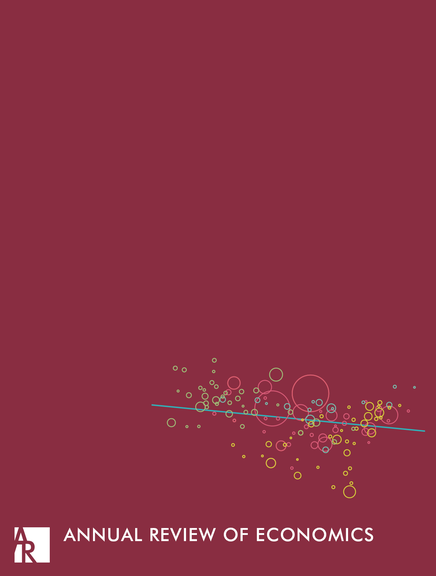Is Education Consumption or Investment? Implications for School Competition
IF 11.4
2区 经济学
Q1 ECONOMICS
引用次数: 11
Abstract
Milton Friedman argued that giving parents freedom to choose schools would improve education. His argument was simple and compelling because it extended results from markets for consumer goods to education. We review the evidence, which yields surprisingly mixed results on Friedman's prediction. A key reason is that households often seem to choose schools based on their absolute achievement rather than their value added. We show that this can be rational in a model based on three ingredients that economists have highlighted since Friedman worked on the issue. First, education is an investment into human capital. Second, labor markets can feature wage premia: Individuals of a given skill level may receive higher wages if they match to more productive firms. Third, distance influences school choice and the placements that schools produce. These factors imply that choice alone is too crude a mechanism to ensure the effective provision of schooling.教育是消费还是投资?对学校竞争的影响
米尔顿·弗里德曼认为,给予家长选择学校的自由将改善教育。他的论点简单而令人信服,因为它将结果从消费品市场延伸到了教育领域。我们回顾了证据,对弗里德曼的预测产生了令人惊讶的不同结果。一个关键原因是,家庭选择学校的标准似乎往往是学校的绝对成绩,而不是学校的附加值。我们表明,在一个基于三个要素的模型中,这可能是合理的,自弗里德曼研究这个问题以来,经济学家一直强调这三个要素。首先,教育是对人力资本的投资。其次,劳动力市场可以表现出工资溢价:具有特定技能水平的个人如果与生产率更高的公司相匹配,可能会获得更高的工资。第三,距离影响学校选择和学校生产的安置。这些因素表明,单靠选择是一种过于粗糙的机制,无法确保有效地提供教育。
本文章由计算机程序翻译,如有差异,请以英文原文为准。
求助全文
约1分钟内获得全文
求助全文
来源期刊

Annual Review of Economics
ECONOMICS-
CiteScore
9.70
自引率
3.60%
发文量
34
期刊介绍:
The Annual Review of Economics covers significant developments in the field of economics, including macroeconomics and money; microeconomics, including economic psychology; international economics; public finance; health economics; education; economic growth and technological change; economic development; social economics, including culture, institutions, social interaction, and networks; game theory, political economy, and social choice; and more.
 求助内容:
求助内容: 应助结果提醒方式:
应助结果提醒方式:


